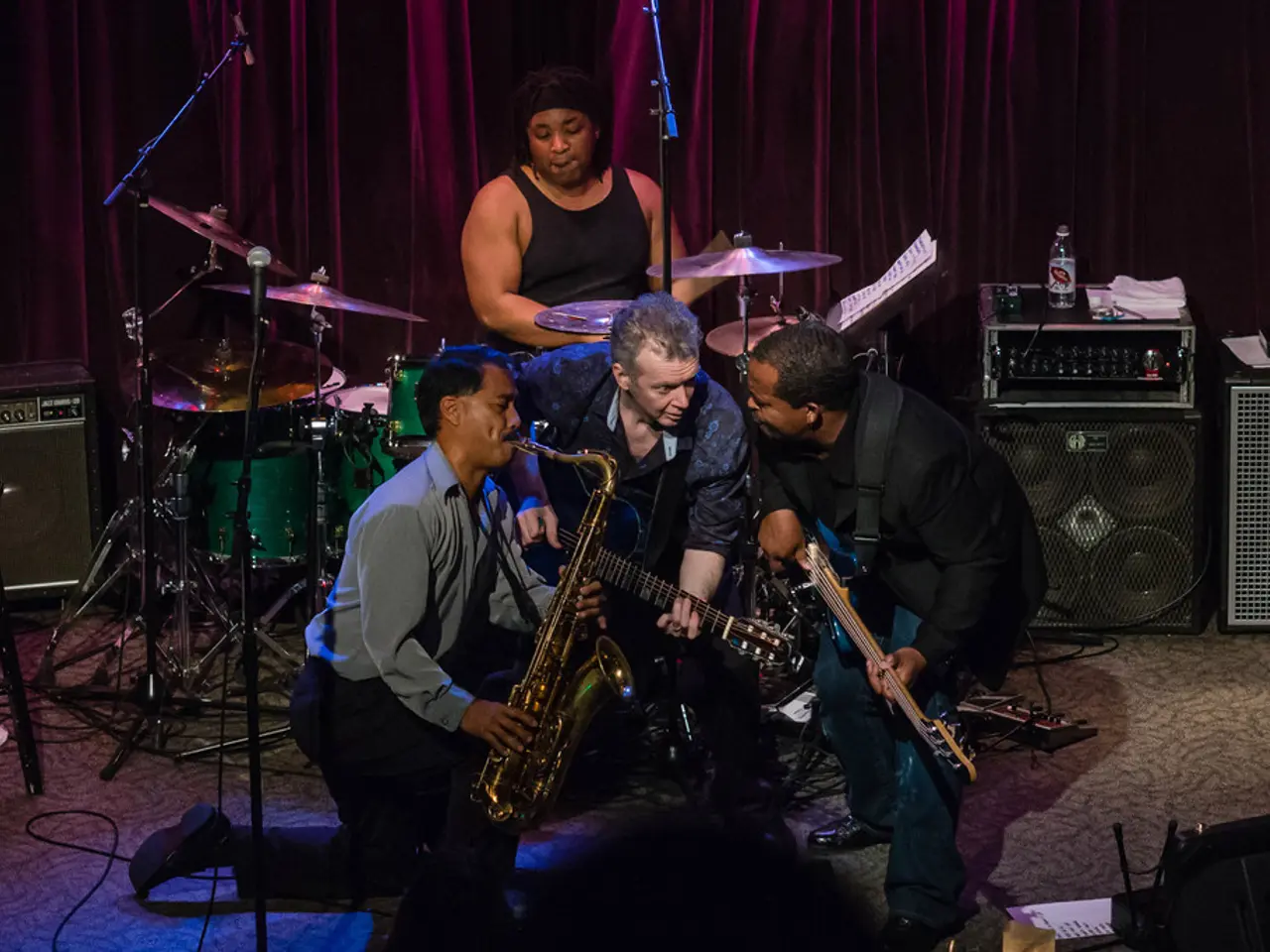Transit Becomes More Accessible and User-Oriented Through Ampetronic Innovations
Auri Enhances Accessibility at Bristol Temple Meads Station
In a significant step towards improving accessibility in transport environments, Auri, a groundbreaking assistive listening system, has been integrated into Bristol Temple Meads Station. Powered by Ampetronic and Listen Technologies, Auri uses cutting-edge Bluetooth LE Audio-based technology to broadcast clear announcements and audio cues directly to compatible hearing aids, cochlear implants, earbuds, or personal receivers [1][2][4].
This marks the first public integration of Auri in a transport environment, and early reactions from passengers who have tried the system have been extremely encouraging. The system is expected to benefit passengers with hearing loss who use Auracast-compatible hearing aids, cochlear implants, or earbuds, as well as neurodivergent individuals and anyone who finds noisy environments challenging [1][2].
The program is a collaboration between Network Rail, Innovate UK, and aims to reduce barriers to innovation. Ampetronic has commissioned RNID (Royal National Institute for Deaf People) to conduct in-depth user trials at Bristol Temple Meads Station to assess the efficacy of the Auri system [1][2][4].
The installation was conducted as part of the Station Innovation Zone program by Connected Places Catapult. Ampetronic installed 10 Auri transmitters in the station, covering high-traffic zones such as Platforms 9-12, the pedestrian subway area, and Ticket Hall. Passengers in these areas with Auracast-enabled devices can access live audio broadcasts from the station's public address system [1][2].
Key benefits and impacts include enhanced speech clarity and audio quality, inclusive and personalized accessibility, improved passenger experience and safety, operational efficiencies, and lower cost and easier deployment [1][2][3][4].
By enabling unobtrusive, personalized audio guidance, the system reduces anxiety and confusion in complex transit environments, enhancing the overall passenger experience and safety for users who might otherwise miss critical information [1][2]. The trials will evaluate the type of information the system should broadcast and what improvements could be made to access the technology [1][2].
Ampetronic will also evaluate the interoperability of Auri with existing systems. Jonathon Hoskin, business development manager at Ampetronic, expressed eagerness for more passengers to experience Auri and find it helpful. Hoskin stated that assessment has always been an important component of this project, and feedback gathered in the trial can help improve accessibility, the passenger experience, and operational efficiencies [1].
In summary, Auri significantly improves accessibility and inclusivity for hearing-impaired and neurodivergent passengers by improving audio clarity and delivering direct, personalized announcements, thereby enabling safer and more comfortable travel experiences. Its progressive deployment and positive trial outcomes point towards substantial impacts in public transit accessibility globally [1][2][4].
References: [1] Ampetronic. (2022). Auri at Bristol Temple Meads Station. Retrieved from https://www.ampetronic.co.uk/news/auri-at-bristol-temple-meads-station/ [2] Ampetronic. (2022). Auri. Retrieved from https://www.ampetronic.co.uk/products/auri/ [3] Ampetronic. (2022). Auri: Improving accessibility and operational efficiency in public transport. Retrieved from https://www.ampetronic.co.uk/resources/auri-improving-accessibility-and-operational-efficiency-in-public-transport/ [4] Listen Technologies. (2022). Auri. Retrieved from https://www.listentech.com/auracast/auri/
Read also:
- Tesla is reportedly staying away from the solid-state battery trend, as suggested by indications from CATL and Panasonic.
- California links 100,000 home storage batteries through its Virtual Power Plant program.
- Financial regulatory body examines potential instability of Decentralized Finance (DeFi) and cryptocurrencies as they approach a significant growth milestone, known as "critical mass".
- Online Advertising Consent Framework Faced with Significant Ramifications According to Belgian Data Protection Authority's Decision






